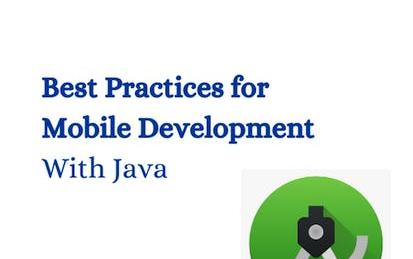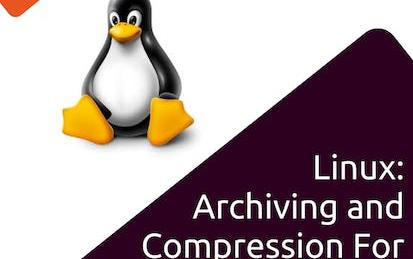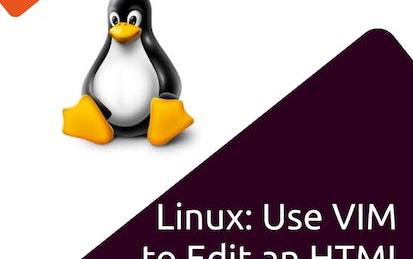

دوراتنا

System Validation (2): Model process behaviour
System Validation is the field that studies the fundamentals of system communication and information processing. It is the next logical step in computer science and improving software development in general. It allows automated analysis based on behavioural models of a system to see if a system works correctly. We want to guarantee that the systems does exactly what it is supposed to do. The techniques put forward in system validation allow to prove the absence of errors.
-
Course by

-
 Self Paced
Self Paced
-
 5 ساعات
5 ساعات
-
 الإنجليزية
الإنجليزية

Data Mining Pipeline
This course introduces the key steps involved in the data mining pipeline, including data understanding, data preprocessing, data warehousing, data modeling, interpretation and evaluation, and real-world applications. This course can be taken for academic credit as part of CU Boulder’s MS in Data Science or MS in Computer Science degrees offered on the Coursera platform. These fully accredited graduate degrees offer targeted courses, short 8-week sessions, and pay-as-you-go tuition. Admission is based on performance in three preliminary courses, not academic history.
-
Course by

-
 Self Paced
Self Paced
-
 22 ساعات
22 ساعات
-
 الإنجليزية
الإنجليزية

Teaching Impacts of Technology: Relationships
In this course you’ll focus on how “smart” devices have changed how we interact with others in personal ways, impacting how we stay connected in our increasingly mobile society. This will be done through a series of paired teaching sections, exploring a specific “Impact of Computing” in your typical day and the “Technologies and Computing Concepts” that enable that impact, all at a K12-appropriate level.
-
Course by

-
 Self Paced
Self Paced
-
 11 ساعات
11 ساعات
-
 الإنجليزية
الإنجليزية

Cybersecurity for Data Science
This course aims to help anyone interested in data science understand the cybersecurity risks and the tools/techniques that can be used to mitigate those risks. We will cover the distinctions between confidentiality, integrity, and availability, introduce learners to relevant cybersecurity tools and techniques including cryptographic tools, software resources, and policies that will be essential to data science.
-
Course by

-
 Self Paced
Self Paced
-
 19 ساعات
19 ساعات
-
 الإنجليزية
الإنجليزية

Python Basics: Selection and Iteration
Code and run your first python program in minutes without installing anything! This course is designed for learners with no coding experience, providing a solid foundation of not just python, but core Computer Science topics that can be transferred to other languages. The modules in this course cover printing, operators, iteration (i.e., loops), and selection (i.e., conditionals). To allow for a truly hands-on, self-paced learning experience, this course is video-free.
-
Course by

-
 Self Paced
Self Paced
-
 9 ساعات
9 ساعات
-
 الإنجليزية
الإنجليزية

Data Analysis and Visualization with Python
In this course, you will learn how to read and write data from and to a file. You will also examine how to manipulate and analyze the data using lists, tuples, dictionaries, sets, and the pandas and Matplot libraries. As a developer, it's important to understand how to deal with issues that could cause an application to crash. You will learn how to implement exceptions to handle these issues. You do not need a programming or computer science background to learn the material in this course. This course is open to anyone who is interested in learning how to code and write programs in Python.
-
Course by

-
 Self Paced
Self Paced
-
 16 ساعات
16 ساعات
-
 الإنجليزية
الإنجليزية

Advanced Topics and Future Trends in Database Technologies
This course consists of four modules covering some of the more in-depth and advanced areas of database technologies, followed by a look at the future of database software and where the industry is heading. Advanced Topics and Future Trends in Database Technologies can be taken for academic credit as part of CU Boulder’s Master of Science in Data Science (MS-DS) degree offered on the Coursera platform. The MS-DS is an interdisciplinary degree that brings together faculty from CU Boulder’s departments of Applied Mathematics, Computer Science, Information Science, and others.
-
Course by

-
 Self Paced
Self Paced
-
 17 ساعات
17 ساعات
-
 الإنجليزية
الإنجليزية

Java Object Basics: Functions, Recursion, and Objects
Code and run your first Java program in minutes without installing anything! This course is designed for learners with limited coding experience, providing a solid foundation of not just Java, but core Computer Science topics that can be transferred to other languages. The modules in this course cover functions, recursion, objects, and mutability. Completion of the prior 2 courses in this specialization are recommended. To allow for a truly hands-on, self-paced learning experience, this course is video-free.
-
Course by

-
 Self Paced
Self Paced
-
 9 ساعات
9 ساعات
-
 الإنجليزية
الإنجليزية

Compose and Program Music in Python using Earsketch
By the end of this course, you will create a basic composition using the Python programming language in Earsketch. You will learn basic Python functions in order to create a basic music composition. Learning basic Python functions will allow you to develop your skills in programming and diversify your knowledge of various programming languages. Python has become increasingly popular in computer science; knowledge of Python is highly desired in the computer science industry.
-
Course by

-
 Self Paced
Self Paced
-
 3 ساعات
3 ساعات
-
 الإنجليزية
الإنجليزية

Java Basics: Selection and Iteration
Code and run your first Java program in minutes without installing anything! This course is designed for learners with no coding experience, providing a solid foundation of not just Java, but core Computer Science topics that can be transferred to other languages. The modules in this course cover printing, operators, iteration (i.e., loops), and selection (i.e., conditionals). To allow for a truly hands-on, self-paced learning experience, this course is video-free.
-
Course by

-
 Self Paced
Self Paced
-
 9 ساعات
9 ساعات
-
 الإنجليزية
الإنجليزية

Best Practices for Mobile Development With Java
By the end of this project, you will be able to implement the following validation techniques: Presence checks, length checks, type checks, email validation, credit card validation, and date validation. This will prevent any users of your app from inputting invalid data that may break your app. In This project, we will use Java with the Android Studio IDE. This project is for anyone with at least basic experience with Java and Android Studio with an interest in mobile app development or validation. Anyone familiar with methods, variables, if statements, loops, and classes can follow along.
-
Course by

-
 Self Paced
Self Paced
-
 4 ساعات
4 ساعات
-
 الإنجليزية
الإنجليزية

Object-Oriented Programming and GUI with Python
In this course we will implement object-oriented programming into Python programs; outline the importance of why and how we use object-oriented programming; and learn how to use inheritance when designing a program. We will also look at how to build a graphical user interface for a basic program. You do not need programming or computer science experience to learn the material in this course. This course is open to anyone who is interested in learning how to code and write programs in Python. We are very excited that you will be learning with us and hope you enjoy the course!
-
Course by

-
 Self Paced
Self Paced
-
 11 ساعات
11 ساعات
-
 الإنجليزية
الإنجليزية

Linux: Archiving and Compression for DevOps (tar/gzip)
In this 1-hour long project-based course on Linux: Archiving and Compression for DevOps you will be working entirely on the command line and using powerful Linux commands using tar and various compression commands such as gzip and bzip2 to learn how file archiving and compression works in Linux. You will be archiving a Wordpress directory of files and compressing the archive using various compression formats. You will no longer be mystified by what these commands and options are doing, and you will understand the structure of these various commands better.
-
Course by

-
 Self Paced
Self Paced
-
 3 ساعات
3 ساعات
-
 الإنجليزية
الإنجليزية

Digital Signal Processing 4: Applications
Digital Signal Processing is the branch of engineering that, in the space of just a few decades, has enabled unprecedented levels of interpersonal communication and of on-demand entertainment. By reworking the principles of electronics, telecommunication and computer science into a unifying paradigm, DSP is a the heart of the digital revolution that brought us CDs, DVDs, MP3 players, mobile phones and countless other devices. The goal, for students of this course, will be to learn the fundamentals of Digital Signal Processing from the ground up.
-
Course by

-
 Self Paced
Self Paced
-
 14 ساعات
14 ساعات
-
 الإنجليزية
الإنجليزية

Dynamic Programming, Greedy Algorithms
This course covers basic algorithm design techniques such as divide and conquer, dynamic programming, and greedy algorithms. It concludes with a brief introduction to intractability (NP-completeness) and using linear/integer programming solvers for solving optimization problems. We will also cover some advanced topics in data structures. This course can be taken for academic credit as part of CU Boulder’s MS in Data Science or MS in Computer Science degrees offered on the Coursera platform.
-
Course by

-
 Self Paced
Self Paced
-
 38 ساعات
38 ساعات
-
 الإنجليزية
الإنجليزية

Fundamentals of Data Visualization
Data is everywhere. Charts, graphs, and other types of information visualizations help people to make sense of this data. This course explores the design, development, and evaluation of such information visualizations. By combining aspects of design, computer graphics, HCI, and data science, you will gain hands-on experience with creating visualizations, using exploratory tools, and architecting data narratives.
-
Course by

-
 التعلم الذاتي
التعلم الذاتي
-
 15 ساعات
15 ساعات
-
 الإنجليزية
الإنجليزية

Digital Signal Processing 2: Filtering
Digital Signal Processing is the branch of engineering that, in the space of just a few decades, has enabled unprecedented levels of interpersonal communication and of on-demand entertainment. By reworking the principles of electronics, telecommunication and computer science into a unifying paradigm, DSP is a the heart of the digital revolution that brought us CDs, DVDs, MP3 players, mobile phones and countless other devices. The goal, for students of this course, will be to learn the fundamentals of Digital Signal Processing from the ground up.
-
Course by

-
 Self Paced
Self Paced
-
 18 ساعات
18 ساعات
-
 الإنجليزية
الإنجليزية

Python Object Basics: Functions, Recursion, and Objects
Code and run your first python program in minutes without installing anything! This course is designed for learners with limited coding experience, providing a solid foundation of not just python, but core Computer Science topics that can be transferred to other languages. The modules in this course cover functions, recursion, objects, and mutability. Completion of the prior 2 courses in this specialization are recommended. To allow for a truly hands-on, self-paced learning experience, this course is video-free.
-
Course by

-
 Self Paced
Self Paced
-
 11 ساعات
11 ساعات
-
 الإنجليزية
الإنجليزية

Basic Robotic Behaviors and Odometry
"Basic Robotic Behaviors and Odometry" provides you with an introduction to autonomous mobile robots, including forward kinematics (“odometry”), basic sensors and actuators, and simple reactive behavior. This course is centered around exercises in the realistic, physics-based simulator, “Webots”, where you will experiment in a hands-on manner with simple reactive behaviors for collision avoidance and line following, state machines, and basic forward kinematics of non-holonomic systems.
-
Course by

-
 Self Paced
Self Paced
-
 28 ساعات
28 ساعات
-
 الإنجليزية
الإنجليزية

Capstone Project: Teaching Impacts of Technology
In this project-based course you’ll review the Advanced Placement Computer Science Principles course and exam description guide to prepare for the “Explore Task”, where students must research a recent computing innovation and and analyze its impacts on the world. You’ll also review the description of this task from the student perspective and complete the task yourself. Then you’ll assess sample secondary student work by following the APCSP scoring guidelines as well as provide feedback to a fellow learner on their submitted task and receive the same from fellow learners.
-
Course by

-
 Self Paced
Self Paced
-
 7 ساعات
7 ساعات
-
 الإنجليزية
الإنجليزية

Learn to Teach Java: Sequences, Primitive Types and Using Objects
Get started with the basics of Java, and prepare to teach others using the free, online interactive CS Awesome textbook. In this course for teachers we'll guide you both in learning Java concepts and skills but also in how to effectively teach those to your students. This course will support you in teaching the Advanced Placement Computer Science A course or a similar introductory university-level programming course. We'll begin with simple instruction sequences, primitive types, and using objects, as covered in the APCS A Units 1 and 2.
-
Course by

-
 Self Paced
Self Paced
-
 13 ساعات
13 ساعات
-
 الإنجليزية
الإنجليزية

Relational Database Design
Have you ever wanted to build a database but don't know where to start? This course will provide you a step-by-step guidance. We are going to start from a raw idea to an implementable relational database. Getting on the path, practicing the real-life mini cases, you will be confident and comfortable with Relational Database Design. Let's get started! Relational Database Design can be taken for academic credit as part of CU Boulder’s Master of Science in Data Science (MS-DS) degree offered on the Coursera platform.
-
Course by

-
 Self Paced
Self Paced
-
 71 ساعات
71 ساعات
-
 الإنجليزية
الإنجليزية

Linux: Use Vim to Edit an HTML Document
In this 1-hour long project-based course on Linux: Use Vim to Edit an HTML Document, you will be working entirely in the Bash shell and using powerful VIM commands to learn how we can fully work with files without the need of an IDE or text editor GUI. You will be going through a full workflow, from entering, and exiting VIM, saving and quit without save, to powerful copy, paste and search and replace commands which will allow us to work with single words, whole lines and even chunks of text.
-
Course by

-
 Self Paced
Self Paced
-
 3 ساعات
3 ساعات
-
 الإنجليزية
الإنجليزية

Digital Signal Processing 3: Analog vs Digital
Digital Signal Processing is the branch of engineering that, in the space of just a few decades, has enabled unprecedented levels of interpersonal communication and of on-demand entertainment. By reworking the principles of electronics, telecommunication and computer science into a unifying paradigm, DSP is a the heart of the digital revolution that brought us CDs, DVDs, MP3 players, mobile phones and countless other devices. The goal, for students of this course, will be to learn the fundamentals of Digital Signal Processing from the ground up.
-
Course by

-
 Self Paced
Self Paced
-
 16 ساعات
16 ساعات
-
 الإنجليزية
الإنجليزية

Getting Started with AI using IBM Watson
In this course you will learn how to quickly and easily get started with Artificial Intelligence using IBM Watson. You will understand how Watson works, become familiar with its use cases and real life client examples, and be introduced to several of Watson AI services from IBM that enable anyone to easily apply AI and build smart apps. You will also work with several Watson services to demonstrate AI in action.
This course does not require any programming or computer science expertise and is designed for anyone whether you have a technical background or not.
-
Course by

-
 Self Paced
Self Paced
-
 9 ساعات
9 ساعات
-
 الإنجليزية
الإنجليزية



